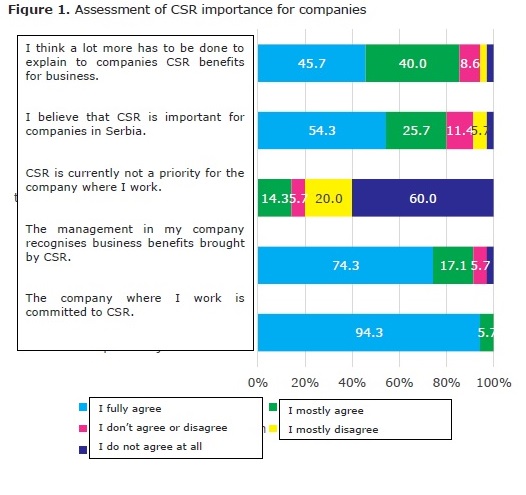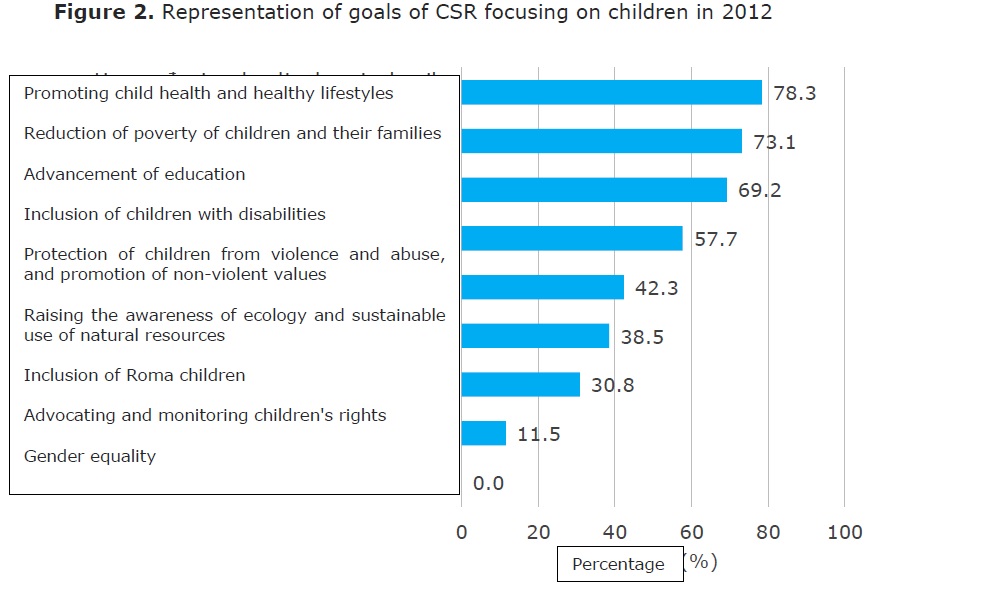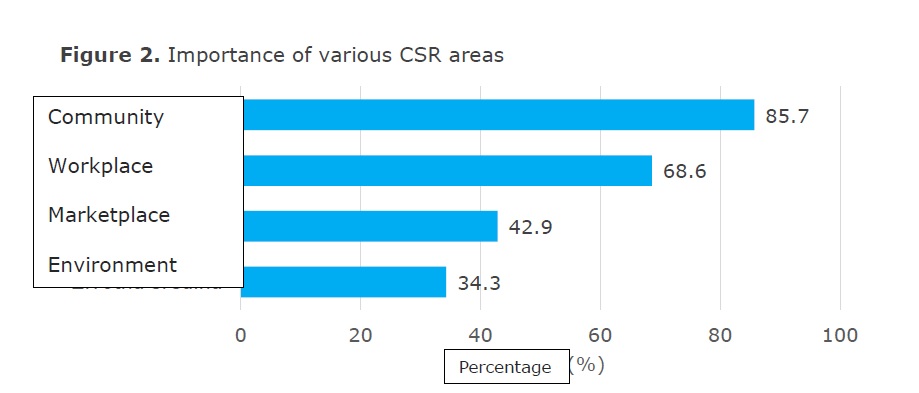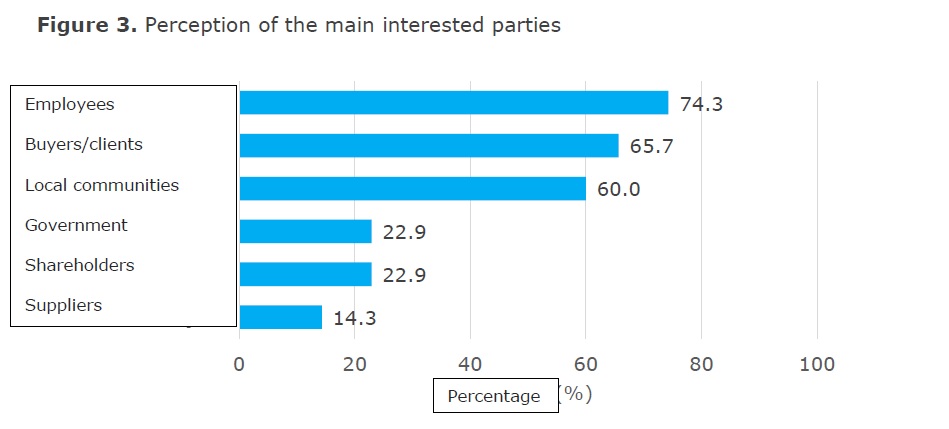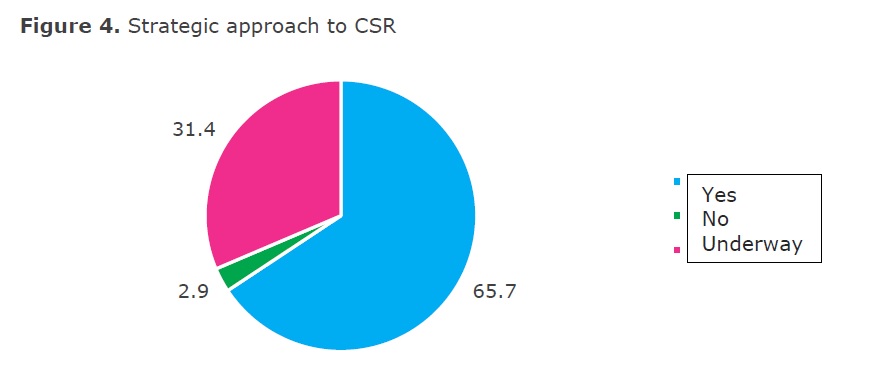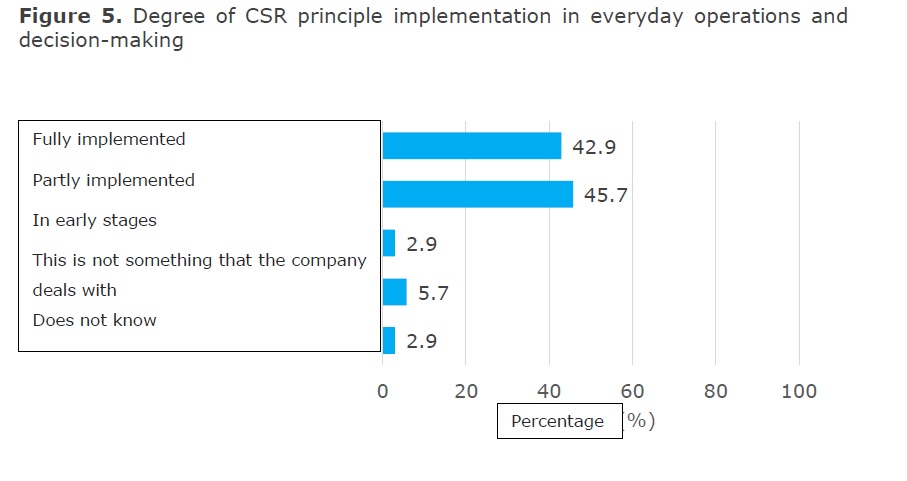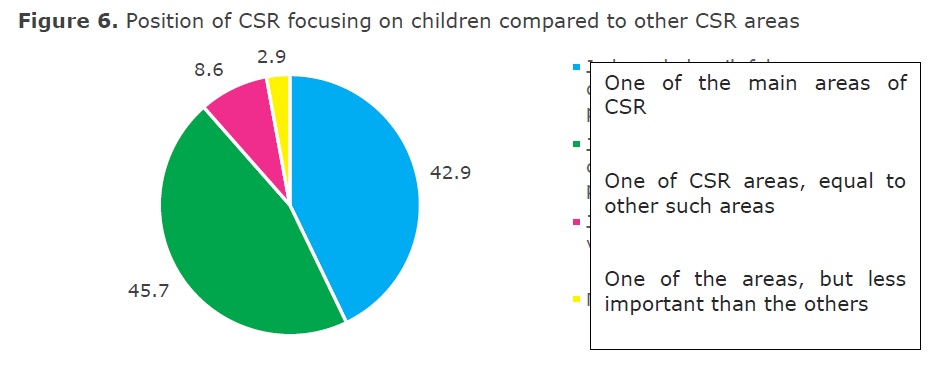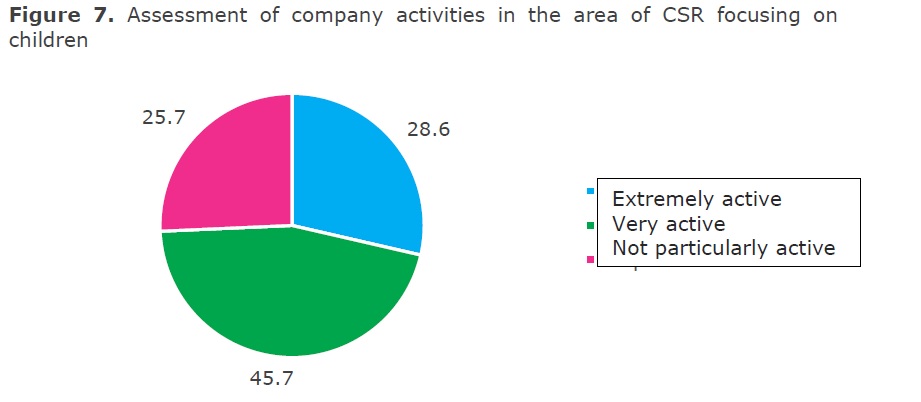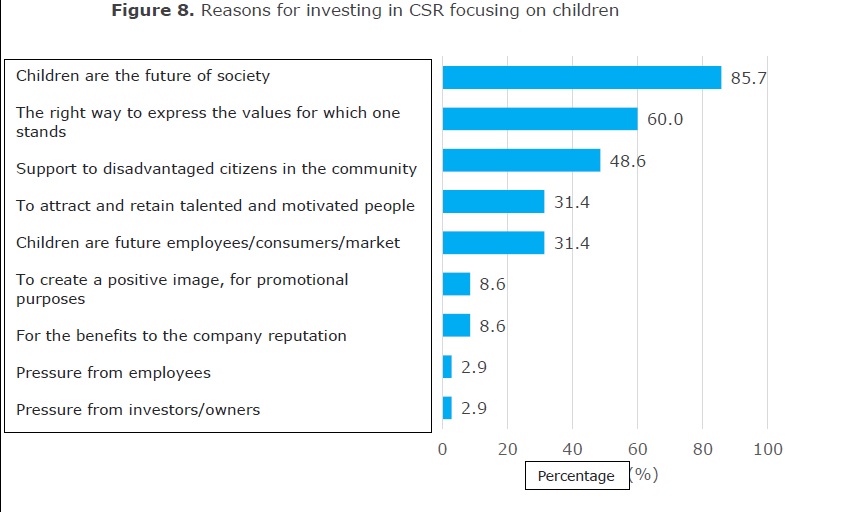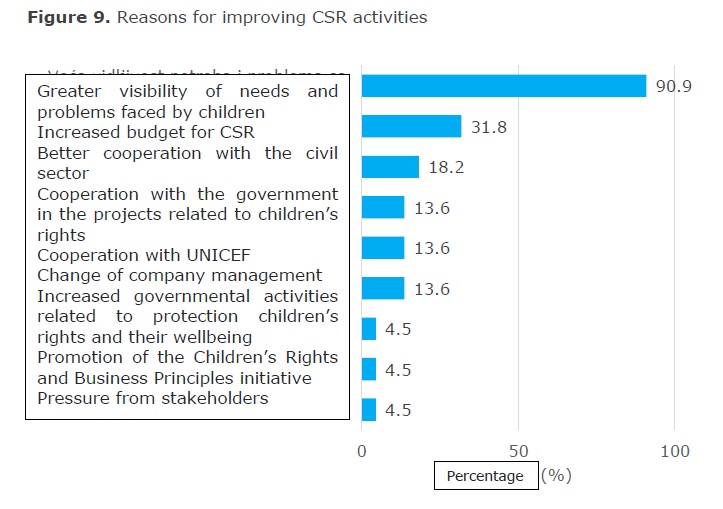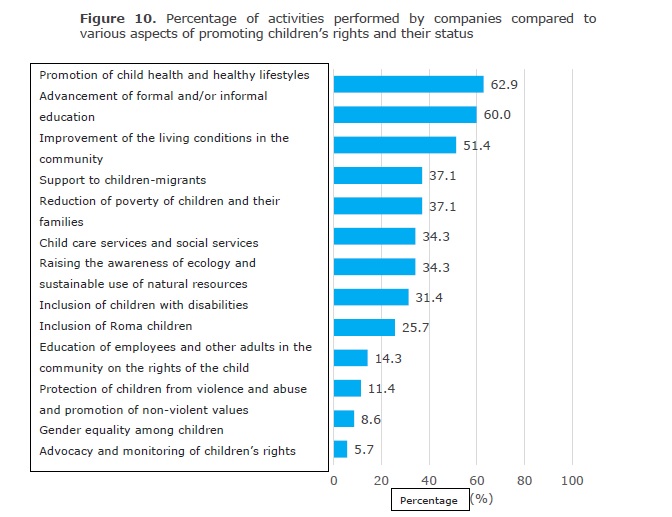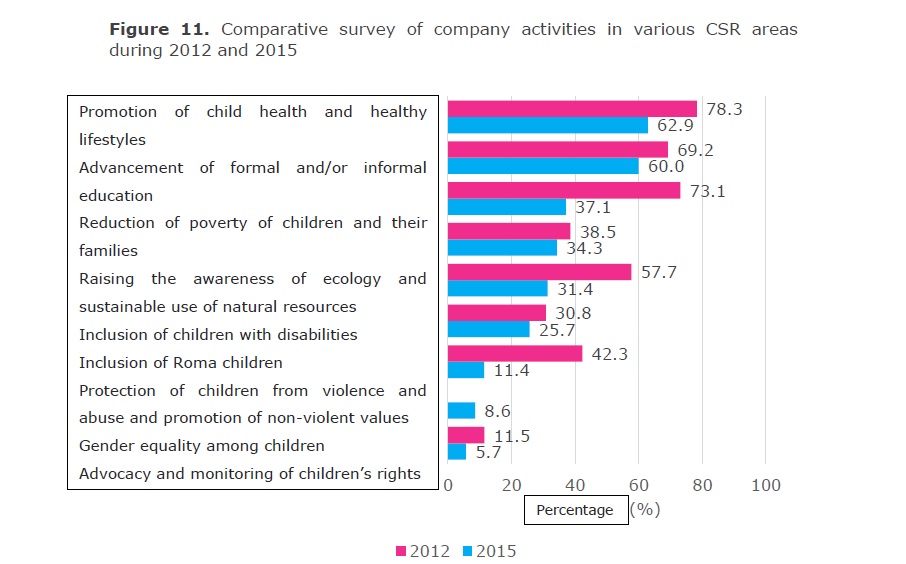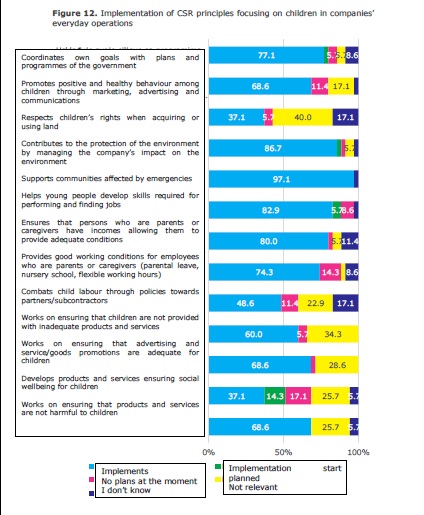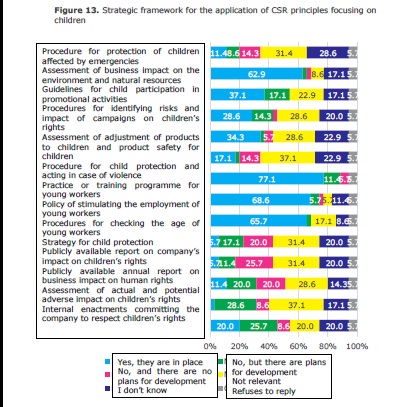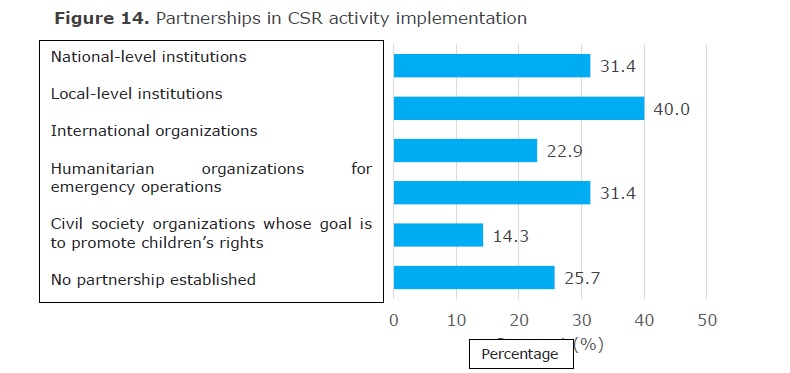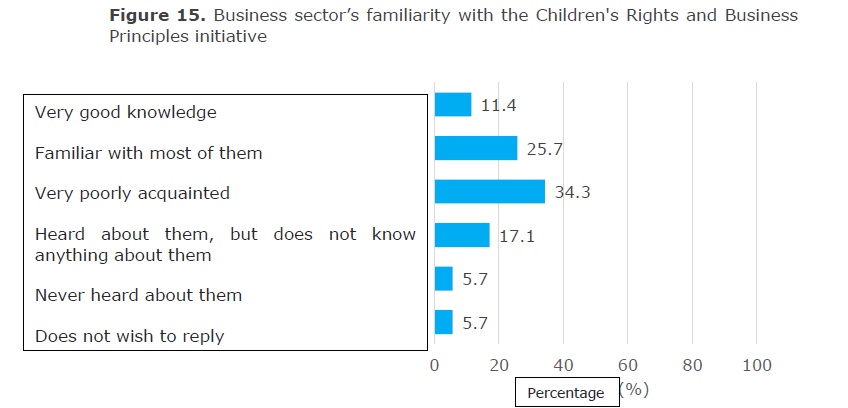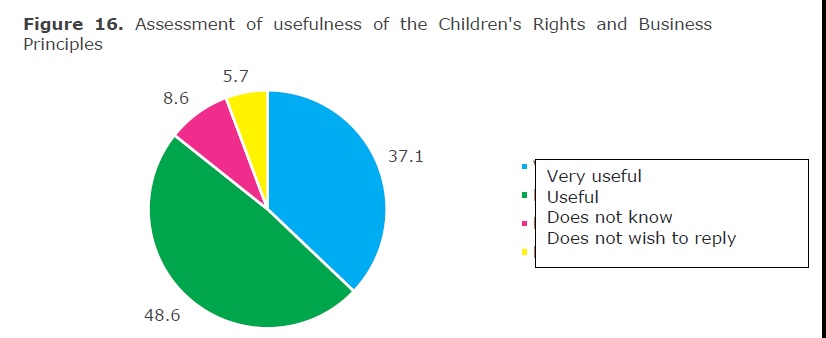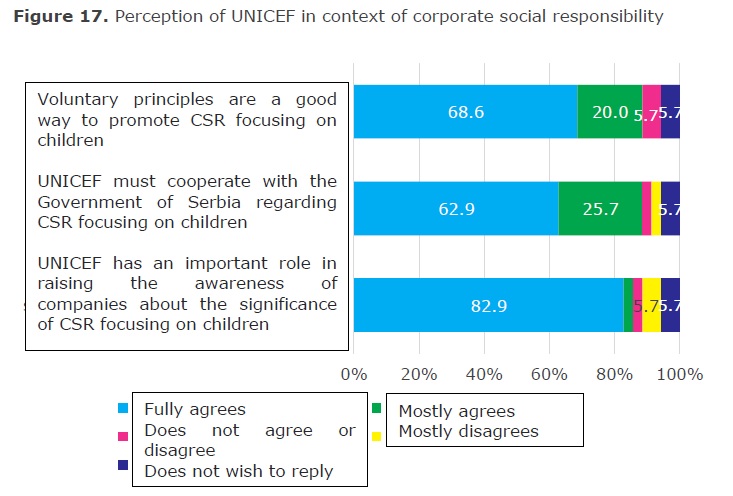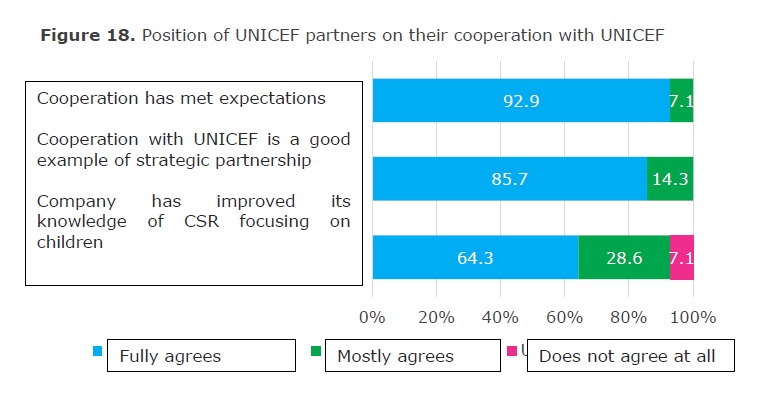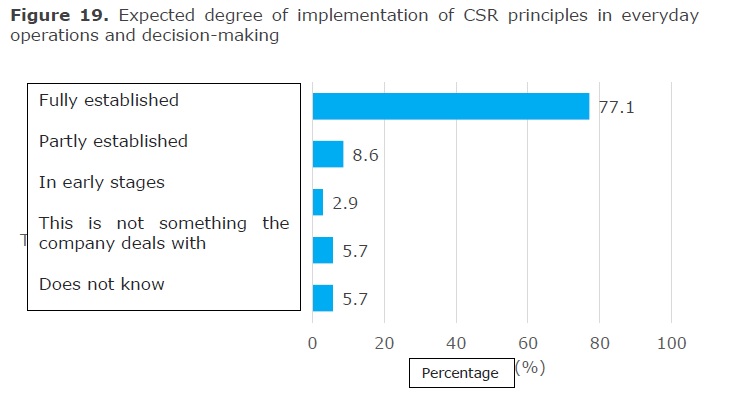At the end of 2015 UNICEF in Serbia conducted a survey, in cooperation with Serbian companies, in order to assess whether the business sector in Serbia is implementing responsible business principles focused on children and in what way they impact children and families, as well as their commitment and contribution to protecting and supporting children’s rights. The survey also mapped good corporate social responsibility (CSR) practices focused on children.
The results of the research show that the business sector highly values activities focused on children, especially as children are the future of the society and that supporting them best promotes values advocated by individual companies. Room for improvement should be sought in the systematisation of individual activities of the business sector with the purpose of developing a comprehensive and integrated approach to children’s rights, by adopting strategic documents which support or regulate children’s rights.
The business sector inevitably has a strong direct and indirect influence on children – as members of their employees’ families, the local community, as future employees, consumers and business leaders. Therefore, consciously or unconsciously, companies have great power to contribute to the welfare and respect, or violation of children’s rights. For this purpose, UNICEF, Save the Children and UN Global Compact developed Children’s Rights and Business Principles, with the aim to observe the wide-ranging influence of the business sector on children and focus more attention to the correlation between business and children’s rights.
The research, which encompassed 35 large Serbian companies with developed and recognised CSR practices, represents a part of UNICEF’s efforts to support the implementation of the Children’s Rights and Business Principles in Serbia. The main research indicators confirm that there is a developed awareness and dedication to CSR, children’s rights, as well as their valuation in previous and future responsible activities:
-
89% of the respondents stress the value of CSR focused on children; almost half of them believe it is a priority;
-
companies have intensified CSR activities focused on children in recent times (63%), due to a significant rise in the visibility of needs and problems children are faced with;
-
conducted activities and programmes are predominantly concerned with the improvement of children’s health and healthy lifestyles (63%), formal/informal education (60%) and living conditions in the community (51%), while support to refugee and migrant children (37%) is a new aspect compared to previous research;
-
Telenor, Nordeus, Wiener Staedtische insurance company, Metalac, IKEA and Electric Power Industry of Serbia represent examples of good practice. These companies have, in addition to conducting individual projects for the support and improvement of children’s rights, strategically systematised the compliance with the Children’s Rights and Business Principles.
“The future of every country depends on the abilities and talent of its citizens. Investing in children and young people is crucial for every community and economy, especially for Serbia which only has 17.6% of children under 18. That’s why every child is precious and it is of the utmost importance to invest in them from their birth. Protection of children’s rights helps develop strong, well-educated communities which are vital for a stable and productive business environment. In the upcoming period, UNICEF will provide expert support to the business and private sector, in order to develop individual activities which support the welfare of children into a comprehensive and integrated approach to children’s rights,” said Michel Saint-Lot, UNICEF in Serbia Representative.
Despite the encouraging research results, there is room for further improvement in the field of systematic regulation of children’s rights through strategic documents and business policies, since less than half of examined companies lack an adopted CSR strategy. Therefore, due to the lack of an integrated approach to CSR focused on children, the influence on the entire spectre of children’s rights is made impossible, such as evaluations and reports on the negative influence of business practices on children’s rights, procedures of verification of age of young workers, the adoption of principles for protecting children from violence, abuse and exploitation, assessment of suitability of products for children and verification of their safety, and the identification of risks and influences of marketing activities on children.
Considering the fact that only slightly more than the third of respondents are familiar with the content of the Children’s Rights and Business Principles UNICEF will, in cooperation with business associations, promote its ten principles among the business sector in order to support their systematic adoption into strategic documents through partnerships, trainings and expert support. Additionally, UNICEF will also develop various modes of support for enhancing capacities of civil society organisations aimed at promoting and improving children’s rights in Serbia, with the purpose of raising their influence on CSR in Serbia.
The full overview in Serbian can be found here: http://www.unicef.rs/novosti/unicef-u-srbiji-je-sproveo-istrazivanje-o-drustveno-odgovornom-poslovanju-usmerenom-ka-deci.html
